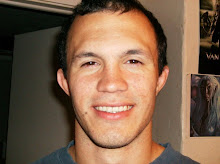We use Statistical Analysis in almost every facet of society today. Engineering, Economics, Science, Medicine, Marketing, and Psychology are just a few fields which heavily utilize this branch of mathematics. In Statistical Analysis we seek to either optimize our gain, based on the probabilities presented, or we observe an optimal trend, and seek to find the probabilities behind it. Through my experiences in obtaining my B.A. in Biology, I was astonished when I learned that statistical models in Economics were virtually identical to statistical models in Ecology. By changing the meaning of certain variables , it is as if we could use money to explain population distribution and survivorship.
Game Theory, which takes root in Bayesian Logic, looks to optimize the probability of winning. The models of Game theory have been used in economics as well. Game theory uses descriptive, situational statistics, to build models , which describe the best decision in a given circumstance. In Magic the Gathering, one could apply Game Theory, by analyzing the current game environment, and modeling the best deck to play in the next sanctioned tournament. During sanctioned play, one could model the best play, at a critical moment in the match, again using descriptive probabilities, which will tell you what your opponent's deck is likely to have in it, or what your opponent is likely to play.
Inferential Statistics are probabilities built from inferences. Inferential models may be used to describe specific circumstances, but they can also describe trends in a broader scope. A skilled and ethical statistician will be able to define, and provide a clear definition of the assumptions in an inferential model. Assumptions are parameters designed to exclude variables from a model, which are believed to exhibit minimal or insignificant influence on the outcome. The groundwork of a descriptive model has no such assumptions, as the probabilities leading up to the model have already been observed. The only true assumption of a descriptive model is that the descriptive probabilities will not change, mid-circumstance. Assumptions can be seen as both the strength and weakness of inferential models.
I have chosen to pursuit inferential models, because first and foremost, I want to look at Magic the Gathering in broad scope. I hope to build models which will prove robust, as the game environment changes from expansion to expansion. Too often, I have seen veteran players leave the game, because of the inability to keep up with the latest trends in Magic. For some, the mechanics get too complex, for others the cards seem too over-powered. But with inferential models, we could gain a clearer understanding of the true power of cards, from past present and future expansions. In applying these models, the task of figuring out what to supplement your collection with, from the current set, would become much less daunting to the veteran player.

No comments:
Post a Comment